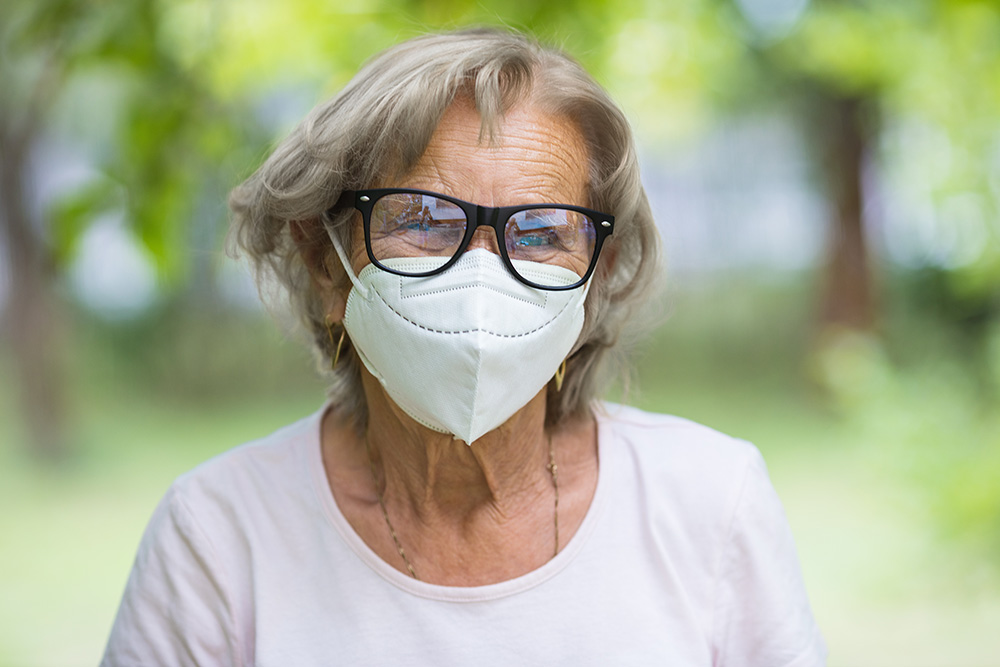Cold and flu season can be a major problem for those of an advanced age. Most older adults have a higher risk of having a severe or debilitating illness or having existing health problems become much worse as a result of infection. This article will discuss how to protect yourself and your loved ones during the cold and flu season.
Hygiene Care for Flu Prevention
Maintaining good hygiene can help prevent the spread of germs and reduce your risk of infection. Wash your hands regularly and thoroughly with soap and warm water for at least 20 seconds. Use an alcohol-based hand sanitiser when hand washing isn’t available. Disinfect commonly touched surfaces, like doorknobs, remote controls, countertops, and cellphones.
Mask Up when in Public
Wearing a mask can help prevent the spread of airborne respiratory diseases like the cold, flu, or COVID. Masks are especially important while in public spaces such as the grocery store, pharmacy, and on public transportation.
While there are many different types of masks on the market, not all protect you to the same degree. Cloth masks are reusable but provide the least protection. And they need to be washed regularly. Surgical masks are much more effective at limiting the spread of disease. For even better protection, use a fitted, air-filtering mask, like a KN95 or an N95. For more information about masking protection, visit this World Health Organization page.
Vaccinations for Flu and More
Flu shots are often a great first line of defense for seniors and those with compromised immune systems. The flu shot should be gotten annually, before or at the beginning of the season. But other shots can be good to re-up during the flu season. For many seniors, the Pneumococcal vaccine is recommended. This vaccine protects against pneumonia, meningitis, and similar diseases. This vaccination is usually given in 2 shots, 1 year apart.
The COVID-19 vaccine or booster shot can be important during flu season as well. COVID spreads much like the flu, and tends to spike during the colder seasons. Much like an annual flu shot, COVID boosters are adjusted for different strains that may be on the rise. Many people haven’t gone back for boosters, which lowers the herd immunity to this disease. The Coronavirus can have major detrimental health effects for older adults, especially those with respiratory or cardiac issues.
Other Ways to Reduce Illness
There are many ways to help strengthen the immune system against disease. Living an overall healthy lifestyle can help reduce illness risk, as well as its impact on your body. Diet, exercise, and maintaining a healthy body weight can be beneficial in limiting the impact of a disease. While not as effective as vaccination, masking, or good hygiene, these methods in tandem can help reduce the health risk that the flu poses to you. Be sure to discuss any major changes in diet and exercise plans with your primary care provider before proceeding.
Diet and the Immune System
A balanced diet rich in vitamins and minerals can benefit the body in many ways. A good diet can lead to a healthier immune system and better outcomes when facing illness. Eating plenty of vegetables, fruits, and lean proteins can make a difference.
Senior Exercise and Your Immune System
Regular exercise can be a challenge for many older adults. But exercising doesn’t have to mean hitting the gym or running a mile. In many cases, any amount of exercise is better than nothing. Whether it’s a walk around the block or some chair yoga, there are plenty of safe and effective exercises that can help older adults live healthier and feel better. Regular exercise, in any form, can help improve cardio health, lung capacity, and boost the immune system. Talk to your doctor about potential exercise plans that can fit your mobility level.
In-Home Care During Flu Season
A home health aide can assist your older or disabled loved one with their daily care needs. This can include hygiene care assistance, meal preparation, housekeeping, medication reminders, exercise assistance, and visits to doctors’ appointments. Our home health aides follow important medical guidance to reduce the spread of illnesses like cold and flu to our clients to the best of their ability.
Safe Harbor Healthcare Services does not provide medical, healthcare, or financial advice via articles. This material has been prepared for informational purposes only. It is not intended to provide and should not be relied on for advice.
Safe Harbor Healthcare Services has provided excellent home care on Staten Island since 1967. Our services help older and disabled individuals live safely and independently while giving their families the peace of mind they need. For more information, contact us or call (718)-979-6900.

